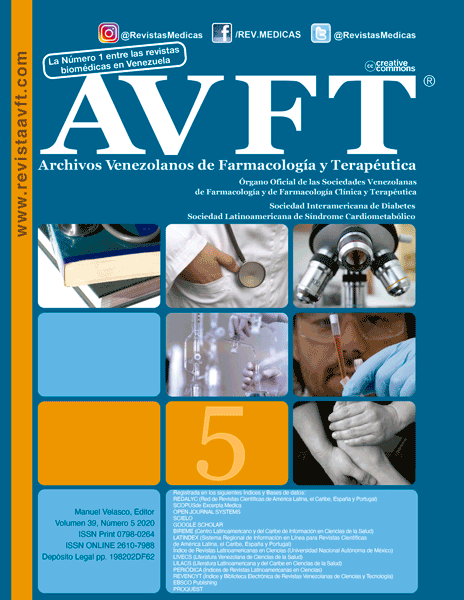Effectiveness of long-term continuous immunomodulatory therapy with gamma-recombinant interferon in patients with clinically manifest forms of neutrophil myeloperoxidase deficiency
Palabras clave:
myeloperoxidase deficiency, interferon-gamma, immunotherapyResumen
Objectives: To date, the medication of gamma-recombinant interferon is employed to prevent infectious episodes while treating some phagocytic immunodeficiencies, including chronic granulomatous disease, autosomal dominant osteopetrosis of Type I, and defects of IL-12/IL23/gamma-interferon path. The objective of the study was to evaluate the efficacy and safety of long-term continuous immunotherapy with gamma-recombinant interferon in another phagocytic immunodeficiency, namely, a clinically manifested neutrophil myeloperoxidase deficiency.
Materials and methods: The experience in applying gamma-interferon in a dose of 500 thousand - 1 million IU per day overnight for 5-7 consecutive months was analyzed in retrospect. The diagnosis was confirmed based on a series of quantitative (flow laser cytofluorimetry) and qualitative (cytochemical method) measurements except for secondary immunosuppression causes. The control group consisted of 32 patients with myeloperoxidase deficiency, who refused the therapy, and the study group comprised 47 similar patients, who had undergone complete immunotherapy. The obtained data were analyzed following the parametric Student's t-test calculating the coefficient of significant difference p, and the number of Z-signs according to Urbach non-parametric test.
Results: The activity of neutrophil myeloperoxidase increased significantly in 45 out of 47 patients in the study group and only in 12 out of 32 control patients (p<0.05; Z<0.05). The content of myeloperoxidase in neutrophils increased significantly in 41 out of 47 patients of the treated group and only in 11 out of 32 control group patients (p<0.05; Z<0.05). In the treated group, the number of infectious episodes was reduced by 75%, and that of allergic episodes - by 51% (p<0.05; Z<0.05). A dramatic reduction in the necessity to apply antimicrobial therapy, readmission to hospitals, and surgical interventions (p<0.05; Z<0.05) has been established.
Conclusions: Application of recombinant human gamma-interferon can be an effective and safe preventive therapy strategy for myeloperoxidase deficiency phagocytes. Further research efforts with more participants and better designs are required.




